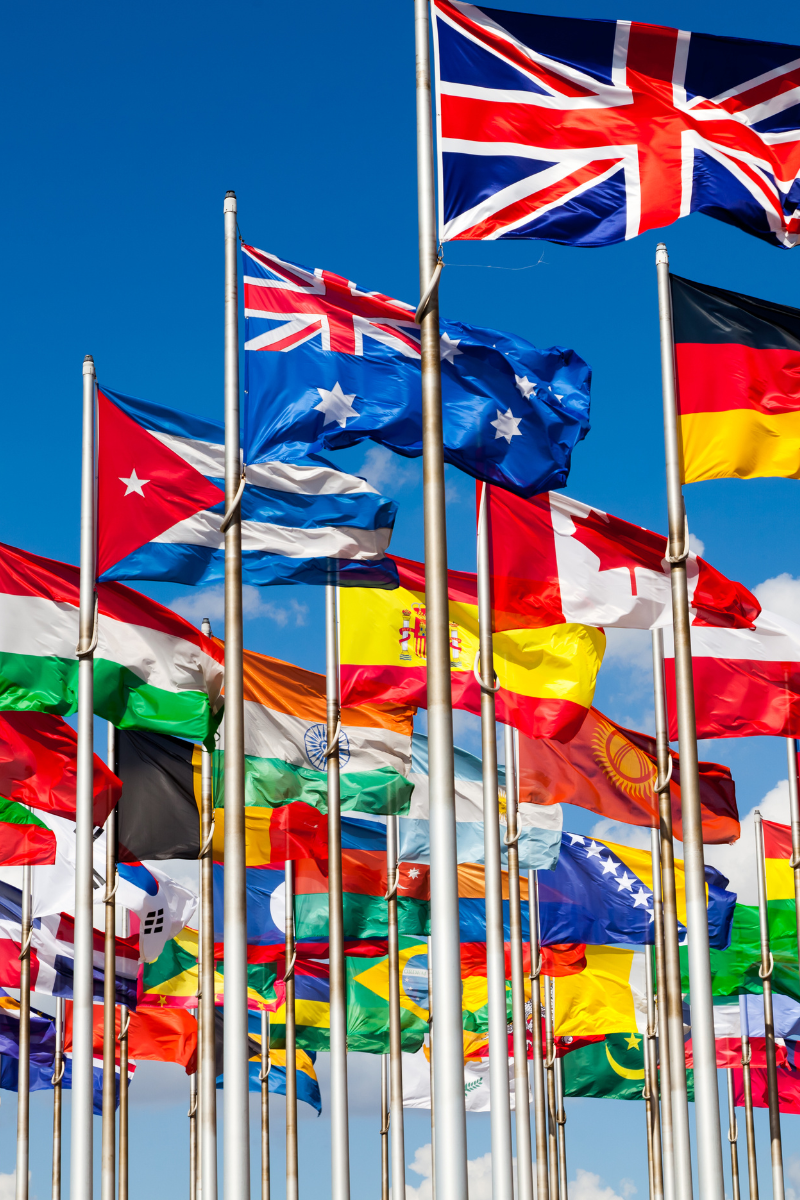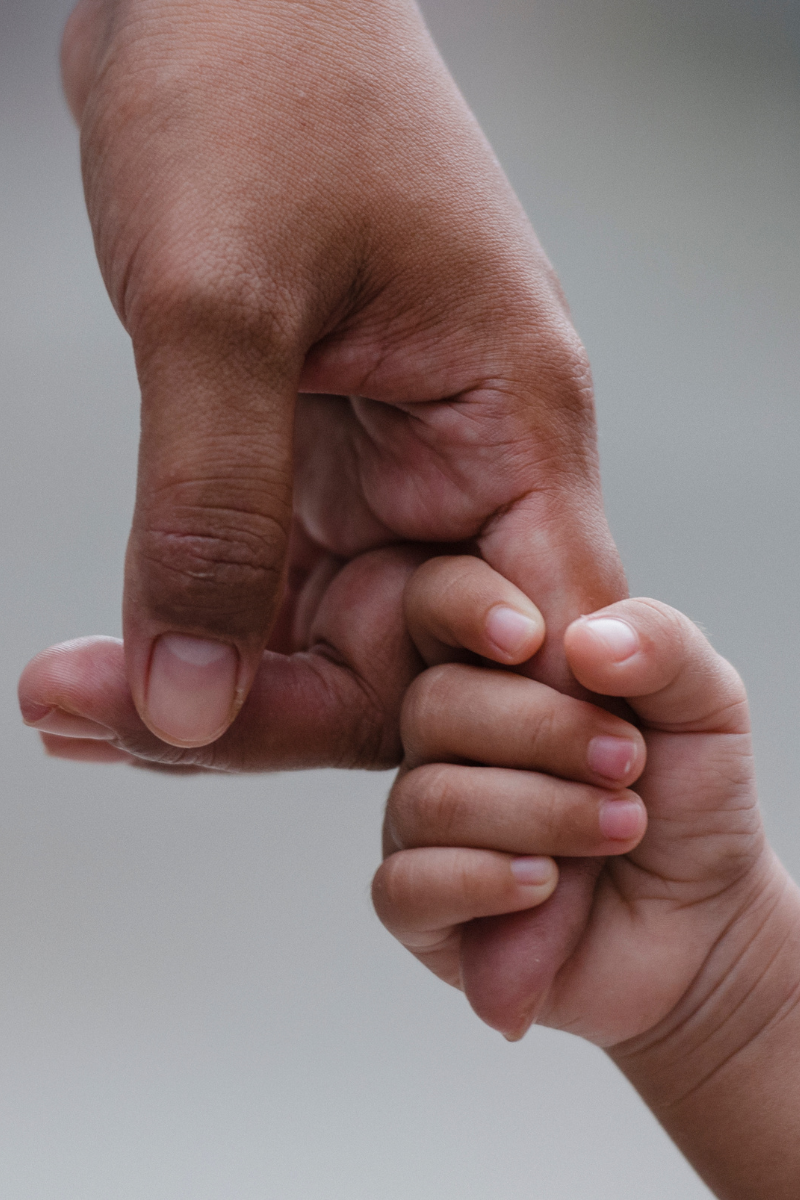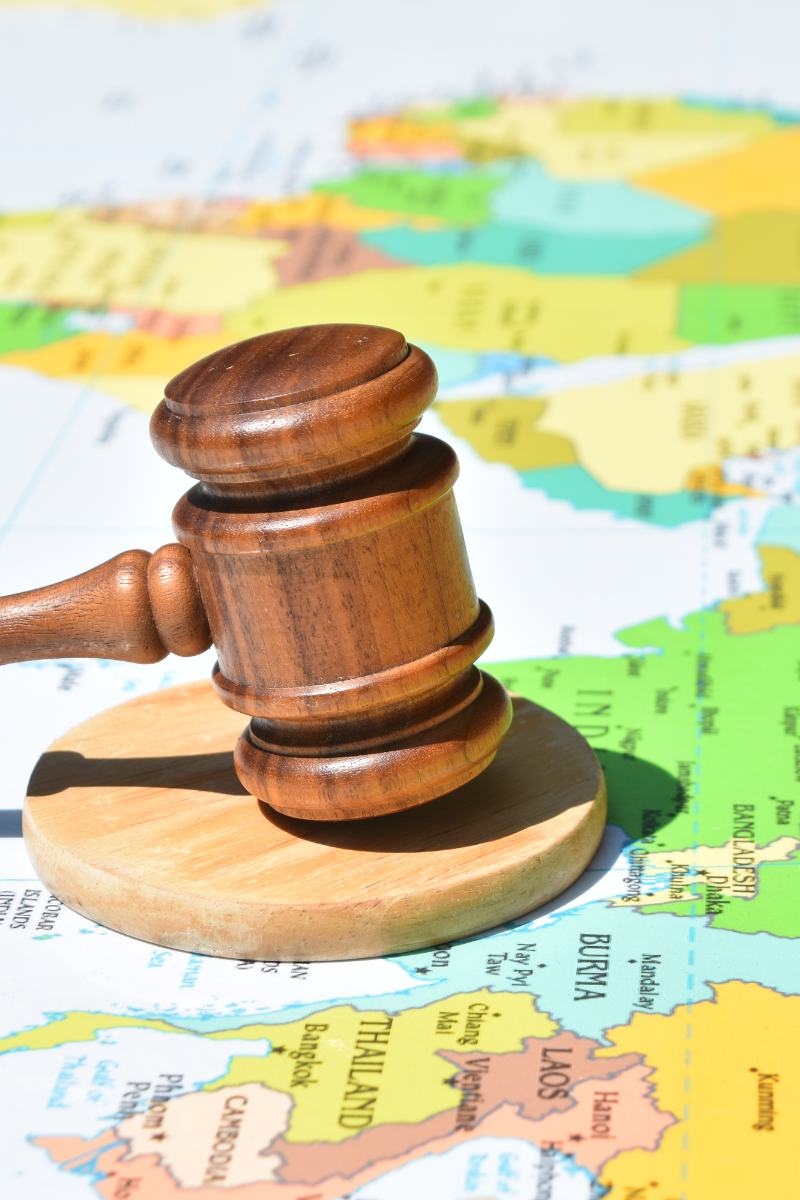Ask a Hague Attorney: Understanding the Hague Convention in 2025
In today’s globally connected world, international parental disputes are increasingly common—and incredibly complex. When one parent removes a child from their country of habitual residence without the other parent’s consent, the emotional and legal stakes can be overwhelming. That’s where the Hague Convention on the Civil Aspects of International Child Abduction comes in.
At Masters Law Group, we help parents navigate these difficult and urgent cases with clarity, compassion, and experienced legal counsel. If you’re facing the possibility of international parental child abduction—or believe it’s already occurred—here’s what you need to know.
What Is the Hague Convention?
The Hague Convention on the Civil Aspects of International Child Abduction is a multinational treaty designed to protect children and their parents from the harmful effects of wrongful international removal or retention. The United States enacted this treaty through the International Child Abduction Remedies Act (ICARA), allowing U.S. courts to take action when children are wrongfully taken to or held in another Convention country.
As of 2025, the Hague Convention on the Civil Aspects of International Child Abduction applies to over 100 countries worldwide. This treaty facilitates the prompt return of children who have been wrongfully removed or retained across international borders.
For the most up-to-date information on the countries that are parties to the Convention, you can refer to the Hague Conference on Private International Law’s official status table at the end of this blog.
How the Hague Convention Works
The Convention provides a legal pathway for the return of children under age 16 who have been wrongfully removed or retained in another country without the consent of a custodial parent.
Here’s how the process generally works:
-
Filing a Petition: A left-behind parent files a Hague application through their country’s central authority.
-
Cross-Border Coordination: The application is forwarded to the central authority in the country where the child is currently located.
-
Legal Proceedings: A local court determines whether the child was wrongfully removed or retained.
-
Return Order: If the court agrees the removal was wrongful, it may order the return of the child to their habitual residence.
In 2023, about 2,180 applications were submitted globally under the Hague Convention, with successful child returns occurring in nearly 39% of those cases.
Exceptions to Immediate Return
While the Hague Convention is a powerful tool, it also includes specific exceptions designed to protect the child’s best interests. A court may deny an immediate return in certain situations, including:
-
Grave Risk of Harm: If returning the child would expose them to physical or psychological danger.
-
Well-Settled Exception: If more than one year has passed and the child is well-integrated in their new environment.
-
Lack of Custodial Exercise: If the petitioner was not actively exercising custodial rights at the time of the removal.
These exceptions are evaluated carefully, and courts must consider evidence on a case-by-case basis.
What Families Should Know
If you’re facing a potential or active international parental abduction, understanding your legal rights and acting quickly are critical.
Here are four important steps to take:
- Act Quickly: The sooner you initiate Hague proceedings, the better your chance of a favorable outcome.
- Contact the U.S. Central Authority: In the U.S., this is the Office of Children’s Issues, within the U.S. Department of State.
- Document Everything: Evidence such as custody orders, birth certificates, travel records, and communication history is essential. Read more on documentation here.
- Work With an Experienced Hague Attorney: These cases involve international law, multiple jurisdictions, and tight deadlines—qualified legal representation is essential.
How a Hague Convention Attorney Can Help
Working with a Hague Convention attorney ensures that your case is handled with the highest level of skill and sensitivity. At Masters Law Group, we provide comprehensive legal guidance and representation throughout the entire process—from petition filing to court hearings and negotiations.
Our attorneys, Erin E. Masters and Hague Attorney and Partner Anthony G. Joseph, have a strong track record in both federal and state Hague Convention cases, and are well-versed in mediation, litigation, and cross-border family law strategy. We help clients:
-
Understand their legal rights and options
-
Prepare and submit Hague petitions
-
Represent their interests in U.S. and international courts
-
Explore alternatives to litigation, including mediation
Real Results: Successful Hague Cases
Masters Law Group has successfully represented parents in numerous high-profile Hague Convention cases across the U.S. Below are a few recent examples:
2024:
- District of South Carolina Rock Hill Division / Mexico: Decision and Order/ Motion for Summary Judgment
- Northern District of Illinois / Ireland: Memorandum Opinion and Order
- Western District of Michigan / Brazil: Representative Decisions
- District of Colorado / Colombia: Aguirre, Decision and Order
2023:
- Northern District of California / Cyprus: Efthymiou v. Labonte, Findings of Fact and Conclusions of Law
- Southern District of Iowa / Mexico, Order Adopting Report and Recommendation
Prior:
- Eastern District of Wisconsin / Mexico: Hinnendael, Decision and Order
- Northern District of Illinois / New Zealand: Ho, Memorandum Opinion and Order
- Northern District of Illinois / Lithuania: Sulcaite, Memorandum Opinion and Order
Final Thoughts
International custody battles can be emotionally devastating and legally complex. At Masters Law Group, we combine deep legal expertise with compassionate representation to help families resolve these disputes efficiently—and with the child’s best interest at the center of every decision.
If you’re facing an international custody issue or believe your child has been wrongfully taken to another country, don’t wait. Contact us today to schedule a complimentary consultation and let us help you take the next steps with confidence.
Frequently Asked Questions (FAQs)
What is the Hague Convention on the Civil Aspects of International Child Abduction?
The Hague Convention is an international treaty designed to return children who have been wrongfully removed from their country of habitual residence or wrongfully retained in another country by a parent. It applies to children under the age of 16 and is recognized by the United States and over 90 other countries.
How do I file a Hague Convention application in the United States?
You can begin the process by contacting the U.S. Department of State’s Office of Children’s Issues. Working with an experienced Hague Convention attorney—like the team at Masters Law Group—can help guide you through filing the necessary petition and preparing supporting documentation.
What qualifies as “wrongful removal” under the Hague Convention?
Wrongful removal occurs when a child is taken from their country of habitual residence in violation of a parent’s custodial rights. This also includes retaining the child in another country without the other parent’s consent when those rights were being exercised or would have been exercised.
Can I get my child back if they’ve been taken to a Hague Convention country?
Yes, if your child has been wrongfully taken or retained in a country that is a signatory to the Hague Convention and all conditions are met, you may file a petition to request the child’s return. However, outcomes depend on the circumstances and any applicable exceptions.
What are the exceptions to returning a child under the Hague Convention?
Courts may deny return if:
-
There’s a grave risk to the child’s health or safety.
-
More than a year has passed and the child is well-settled in the new country.
-
The petitioning parent was not exercising custodial rights at the time of removal.
How long does a Hague Convention case take?
These cases are often expedited but can still vary widely in length depending on the jurisdiction, court backlog, and complexity of the case. Having a knowledgeable attorney can help streamline the process and improve your chances of a successful outcome.
Do I need a Hague Convention lawyer to file a case?
While you are not legally required to have an attorney, Hague Convention cases involve complex international and federal laws. Hiring an experienced Hague Convention lawyer, like those at Masters Law Group, significantly increases your chances of a favorable and efficient resolution.
Hague Countries 2025
Contracting Parties and Signatories to this Convention that are also Members of the HCCH (i.e., the Organization) are in bold; Contracting Parties and Signatories that are not Members of the HCCH are in italics.
| Contracting Party | S 1 | R/A/S2 | Type3 | EIF4 | EXT5 | Auth6 | Res/D/N/DC7 |
|---|---|---|---|---|---|---|---|
| Albania | 4-V-2007 | A* | 1-VIII-2007 | 1 | Res | ||
| Andorra | 6-IV-2011 | A* | 1-VII-2011 | 1 | Res | ||
| Argentina | 28-I-1991 | 19-III-1991 | R | 1-VI-1991 | 1 | D | |
| Armenia | 1-III-2007 | A* | 1-VI-2007 | 1 | Res | ||
| Australia | 29-X-1986 | 29-X-1986 | R | 1-I-1987 | 1 | D | |
| Austria | 12-V-1987 | 14-VII-1988 | R | 1-X-1988 | 1 | D | |
| Bahamas | 1-X-1993 | A* | 1-I-1994 | 1 | |||
| Barbados | 11-VII-2019 | A* | 1-X-2019 | 1 | |||
| Belarus | 12-I-1998 | A* | 1-IV-1998 | 1 | Res | ||
| Belgium | 11-I-1982 | 9-II-1999 | R | 1-V-1999 | 1 | ||
| Belize | 22-VI-1989 | A* | 1-IX-1989 | 1 | Res | ||
| Bolivia (Plurinational State of) | 13-VII-2016 | A* | 1-X-2016 | 1 | D,Res | ||
| Bosnia and Herzegovina | 23-VIII-1993 | Su | 6-III-1992 | 1 | |||
| Botswana | 14-XI-2022 | A* | 1-II-2023 | 1 | |||
| Brazil | 19-X-1999 | A* | 1-I-2000 | 1 | Res | ||
| Bulgaria | 20-V-2003 | A* | 1-VIII-2003 | 1 | Res | ||
| Burkina Faso | 25-V-1992 | A* | 1-VIII-1992 | 1 | |||
| Cabo Verde | 4-X-2022 | A* | 1-I-2023 | 1 | |||
| Canada | 25-X-1980 | 2-VI-1983 | R | 1-XII-1983 | 13 | 1 | D,Res |
| Chile | 23-II-1994 | A* | 1-V-1994 | 1 | D | ||
| China | C | 2 | D,N | ||||
| Colombia | 13-XII-1995 | A* | 1-III-1996 | 1 | |||
| Costa Rica | 9-XI-1998 | A* | 1-II-1999 | 1 | |||
| Croatia | 23-IV-1993 | Su | 1-XII-1991 | 1 | |||
| Cuba | 12-IX-2018 | A* | 1-XII-2018 | 1 | |||
| Cyprus | 4-XI-1994 | A* | 1-II-1995 | 1 | |||
| Czech Republic | 28-XII-1992 | 15-XII-1997 | R | 1-III-1998 | 1 | Res | |
| Denmark | 17-IV-1991 | 17-IV-1991 | R | 1-VII-1991 | 1 | 1 | D,Res |
| Dominican Republic | 11-VIII-2004 | A* | 1-XI-2004 | 1 | |||
| Ecuador | 22-I-1992 | A* | 1-IV-1992 | 1 | |||
| El Salvador | 5-II-2001 | A* | 1-V-2001 | 1 | D,Res | ||
| Estonia | 18-IV-2001 | A* | 1-VII-2001 | 1 | D,Res | ||
| Fiji | 16-III-1999 | A* | 1-VI-1999 | 1 | |||
| Finland | 25-V-1994 | 25-V-1994 | R | 1-VIII-1994 | 1 | D,Res | |
| France | 25-X-1980 | 16-IX-1982 | R | 1-XII-1983 | 1 | Res,D | |
| Gabon | 6-XII-2010 | A* | 1-III-2011 | ||||
| Georgia | 24-VII-1997 | A* | 1-X-1997 | 1 | |||
| Germany | 9-IX-1987 | 27-IX-1990 | R | 1-XII-1990 | 1 | D,Res | |
| Greece | 25-X-1980 | 19-III-1993 | R | 1-VI-1993 | 1 | Res | |
| Guatemala | 6-II-2002 | A* | 1-V-2002 | 1 | Res | ||
| Guinea | 7-XI-2011 | A* | 1-II-2012 | 1 | |||
| Guyana | 5-II-2019 | A* | 1-V-2019 | 1 | |||
| Honduras | 20-XII-1993 | A* | 1-III-1994 | 1 | Res | ||
| Hungary | 7-IV-1986 | A* | 1-VII-1986 | 1 | |||
| Iceland | 14-VIII-1996 | A* | 1-XI-1996 | 1 | Res | ||
| Iraq | 21-III-2014 | A* | 1-VI-2014 | ||||
| Ireland | 23-V-1990 | 16-VII-1991 | R | 1-X-1991 | 1 | ||
| Israel | 4-IX-1991 | 4-IX-1991 | R | 1-XII-1991 | 1 | Res | |
| Italy | 2-III-1987 | 22-II-1995 | R | 1-V-1995 | 1 | ||
| Jamaica | 24-II-2017 | A* | 1-V-2017 | 1 | Res | ||
| Japan | 24-I-2014 | 24-I-2014 | R | 1-IV-2014 | 1 | Res | |
| Kazakhstan | 3-VI-2013 | A* | 1-IX-2013 | 1 | Res | ||
| Latvia | 15-XI-2001 | A* | 1-II-2002 | 1 | D,Res | ||
| Lesotho | 18-VI-2012 | A* | 1-IX-2012 | 1 | |||
| Lithuania | 5-VI-2002 | A* | 1-IX-2002 | 1 | D,Res | ||
| Luxembourg | 18-XII-1984 | 8-X-1986 | R | 1-I-1987 | 1 | Res | |
| Malta | 26-X-1999 | A* | 1-I-2000 | 1 | |||
| Mauritius | 23-III-1993 | A* | 1-VI-1993 | 1 | Res | ||
| Mexico | 20-VI-1991 | A* | 1-IX-1991 | 1 | |||
| Monaco | 12-XI-1992 | A* | 1-II-1993 | 1 | Res | ||
| Montenegro | 1-III-2007 | Su | 3-VI-2006 | 1 | |||
| Morocco | 9-III-2010 | A* | 1-VI-2010 | 1 | |||
| Netherlands | 11-IX-1987 | 12-VI-1990 | R | 1-IX-1990 | 2 | 1 | D,Res |
| New Zealand | 31-V-1991 | A* | 1-VIII-1991 | 1 | Res | ||
| Nicaragua | 14-XII-2000 | A* | 1-III-2001 | 1 | |||
| North Macedonia | 20-IX-1993 | Su | 1-XII-1991 | 1 | |||
| Norway | 9-I-1989 | 9-I-1989 | R | 1-IV-1989 | 1 | Res | |
| Pakistan | 22-XII-2016 | A* | 1-III-2017 | 1 | Res | ||
| Panama | 2-II-1994 | A* | 1-V-1994 | 1 | Res | ||
| Paraguay | 13-V-1998 | A* | 1-VIII-1998 | 1 | |||
| Peru | 28-V-2001 | A* | 1-VIII-2001 | 1 | |||
| Philippines | 16-III-2016 | A* | 1-VI-2016 | 1 | D | ||
| Poland | 10-VIII-1992 | A* | 1-XI-1992 | 1 | D,Res | ||
| Portugal | 22-VI-1982 | 29-IX-1983 | R | 1-XII-1983 | 1 | D | |
| Republic of Korea | 13-XII-2012 | A* | 1-III-2013 | 1 | D,Res | ||
| Republic of Moldova | 10-IV-1998 | A* | 1-VII-1998 | 1 | Res | ||
| Romania | 20-XI-1992 | A* | 1-II-1993 | 1 | D | ||
| Russian Federation | 28-VII-2011 | A* | 1-X-2011 | 1 | D,Res | ||
| Saint Kitts and Nevis | 31-V-1994 | A* | 1-VIII-1994 | 1 | Res | ||
| San Marino | 14-XII-2006 | A* | 1-III-2007 | 1 | D | ||
| Serbia | 29-IV-2001 | Su | 27-IV-1992 | 1 | |||
| Seychelles | 27-V-2008 | A* | 1-VIII-2008 | 1 | |||
| Singapore | 28-XII-2010 | A* | 1-III-2011 | 1 | Res | ||
| Slovakia | 28-XII-1992 | 7-XI-2000 | R | 1-II-2001 | 1 | Res | |
| Slovenia | 22-III-1994 | A* | 1-VI-1994 | 1 | |||
| South Africa | 8-VII-1997 | A* | 1-X-1997 | 1 | Res | ||
| Spain | 7-II-1986 | 16-VI-1987 | R | 1-IX-1987 | 1 | ||
| Sri Lanka | 28-IX-2001 | A* | 1-XII-2001 | 1 | Res | ||
| Sweden | 22-III-1989 | 22-III-1989 | R | 1-VI-1989 | 1 | Res | |
| Switzerland | 25-X-1980 | 11-X-1983 | R | 1-I-1984 | 1 | ||
| Thailand | 14-VIII-2002 | A* | 1-XI-2002 | 1 | Res | ||
| Trinidad and Tobago | 7-VI-2000 | A* | 1-IX-2000 | 1 | |||
| Tunisia | 10-VII-2017 | A* | 1-X-2017 | 1 | Res | ||
| Türkiye | 21-I-1998 | 31-V-2000 | R | 1-VIII-2000 | 1 | Res | |
| Turkmenistan | 29-XII-1997 | A* | 1-III-1998 | 1 | |||
| Ukraine | 2-VI-2006 | A* | 1-IX-2006 | 1 | D | ||
| United Kingdom of Great Britain and Northern Ireland | 19-XI-1984 | 20-V-1986 | R | 1-VIII-1986 | 7 | 1 | N,Res |
| United States of America | 23-XII-1981 | 29-IV-1988 | R | 1-VII-1988 | 1 | Res | |
| Uruguay | 16-XI-1999 | A* | 1-II-2000 | 1 | |||
| Uzbekistan | 31-V-1999 | A* | 1-VIII-1999 | 1 | Res | ||
| Venezuela (Bolivarian Republic of) | 16-X-1996 | 16-X-1996 | R | 1-I-1997 | 1 | Res | |
| Zambia | 26-VIII-2014 | A* | 1-XI-2014 | 1 | |||
| Zimbabwe | 4-IV-1995 | A* | 1-VII-1995 | 1 | Res |



















